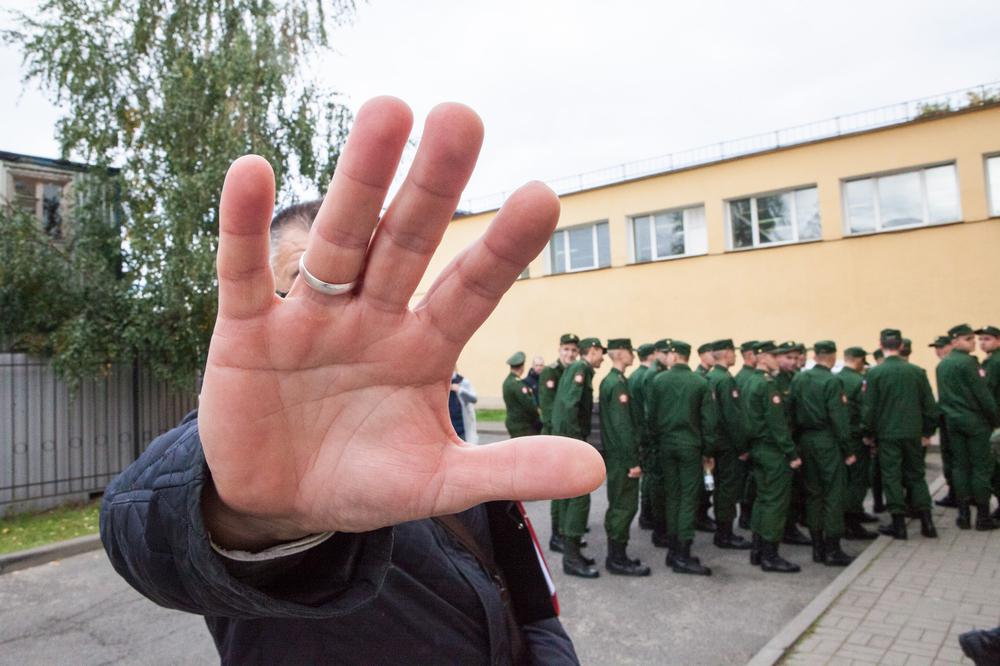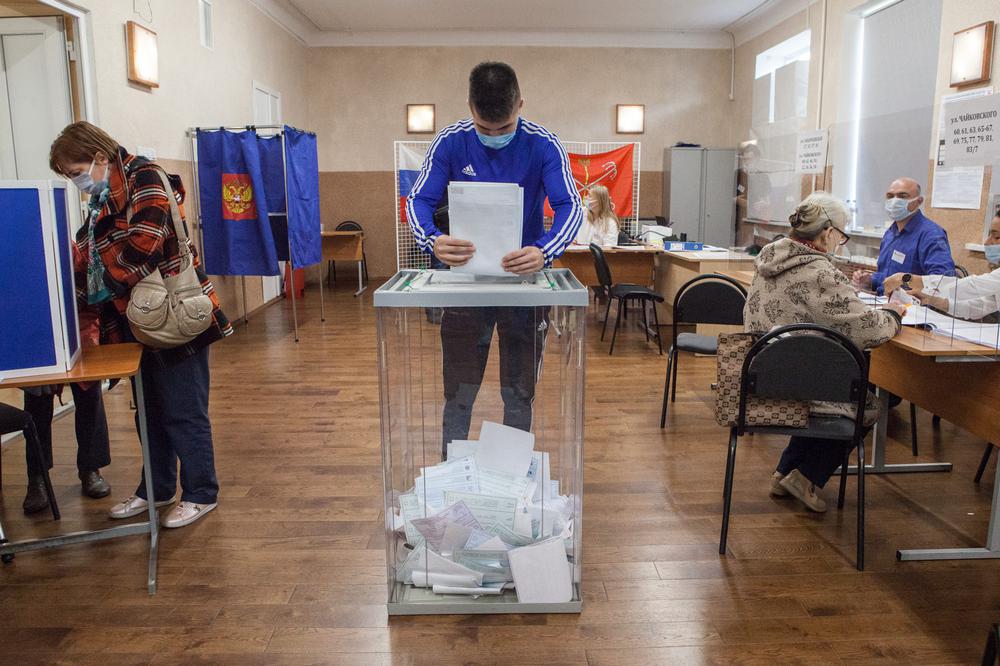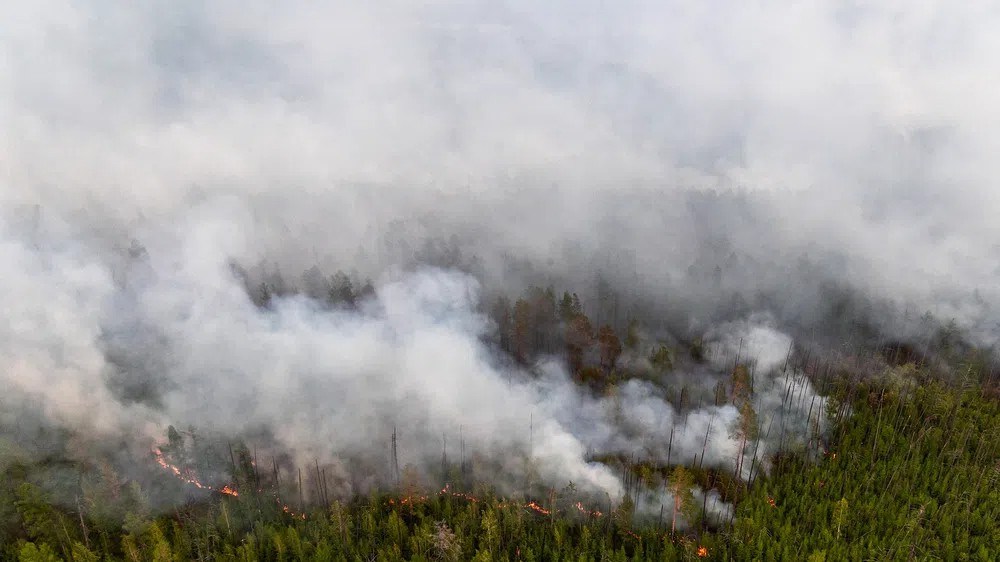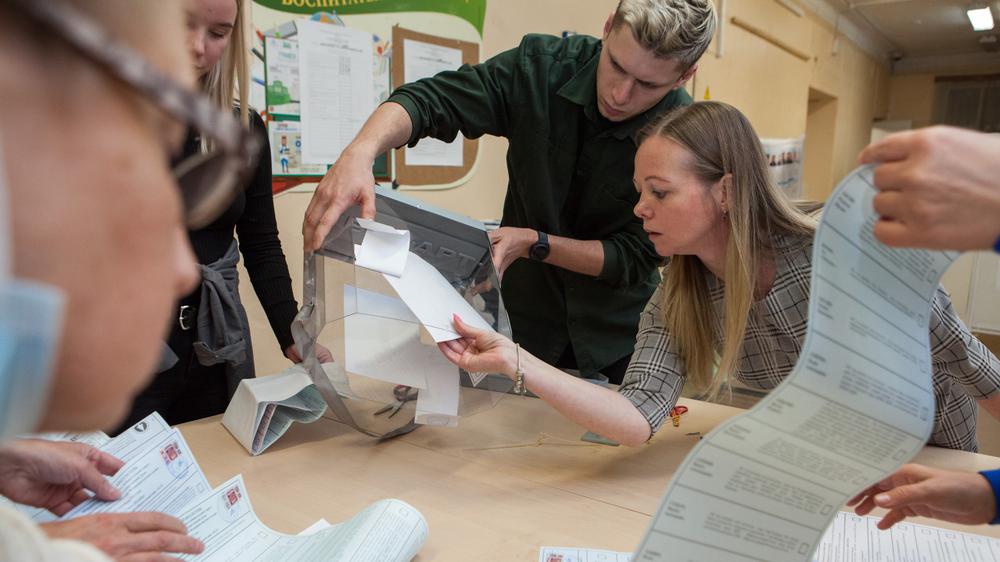Here what’s in store for you this week:
- Novaya is bringing you a special election edition, covering key takeaways from the 2021 parliamentary elections;
- Yakutia has been devastated by mass forest fires over the summer. But the government's incompetence made this climate change catastrophe much worse. We bring you a special investigation from the epicenter of the fire inferno.
Want to get the full story? Click the links below for full-length articles in Russian.
Decoding the 2021 vote: 10 Key Takeaways
The 2021 parliamentary election in Russia might have been rigged, had little or no choice, and took place in the atmosphere of worsening authoritarianism. Yet, it still offers unique insights into the state of internal affairs at the Kremlin and gives a glimpse into the Russian future. This week Novaya's Political Editor Kirill Martynov weighed in on the elections with an exclusive Russia, Explained analysis.
1. There's no democratic voting in Russia. The process of democratic elections to Russia's State Duma was dismantled in three different ways: prior, during, and after the elections. Before the elections, the Kremlin rolled out the laws restricting the rights of citizens to participate in politics if they support 'extremists' — that is if they support opposition such as poisoned dissident Alexei Navalny. During the elections, authorities severely limited the capacity for observers to do anything about suspected election violations. Lastly, after the post-election vote count, there seems to have been a massive rewriting of results and how they were gauged. Tampered electronic voting completely swung the election in favor of United Russia affiliates, and the remaining independent candidates in Moscow had their results flipped — but that process took several hours after the voting stations got closed.
2. The Kremlin aimed at securing another constitutional majority by dividing the protest vote and driving down the turnout. It was a success. The turnout was barely 40%. And key competitors of ruling United Russia were restricted before voting. Changing the voting rules (making it a three-day/electronic ballot) also helped.
3. Destroying the opposition election monitoring system is a sign of strengthening authoritarian tech. The SmartVoting debacle demonstrated increased tech capabilities of the state to censoring unwanted information on the internet. In doing so, Russian officials are no longer constrained by formalities of procedures or laws and act in a de facto designated state of emergency. The election marked the emergence of a successful Russian 'sovereign internet' — analogs to the Chinese Great Internet Firewall. The new digital order symbolizes the new status of Russian authoritarianism, where refusal of political loyalty to the government in any form is considered an offense. While it is common to laugh derisively at Roskomnadzor's various blocks, they can be effective — an ordinary user may simply not figure out how to use multiple parts of the internet to circumvent official obstacles. Over the past ten years, American IT giants have remained the leading institution of freedom of speech in Russia but now publishing information pertaining to Russia on foreign digital platforms amounts to "foreign interference in the elections.

Photo: Elena Lukyanova / Novaya Gazeta
4. The election became a model of the Kremlin's political mobilization. On September 17, the electorate dependent on the government financially was pushed to the polling stations viewing what was happening as a test of loyalty. Despite it being a working day, queues of voters lined up to separate precincts, contrary to the official version of the CEC that multi-day voting is necessary to ensure social distance during the pandemic.
5. The resurgence of the Communist Party is a sign of desperation among Russian voters robbed of real choice. Many voted for the only 'alternative' the Kremlin allows to strip the ruling party of as many parliament seats as possible. Thus, the second-largest party in the country, the Communist Party, received additional votes compared to the 2016 elections (+6%). Today, the CPRF is an ultra-conservative neo-Stalinist political project that supports President Putin's foreign policy (including recognition of separatist Donetsk and Luhansk in Eastern Ukraine), but the party retains some independence voting on social issues such as pension reform.
6. Lack of mass protests after a clearly fraudulent election shows that fear paralyzed Russian politics. Since the defeat of Navalny's protest movement in 2020, the Kremlin used electoral manipulation, eliminated opposition candidates, and created an illusion of «total support» for United Russia to foster political apathy in society.
7. Despite enormous rigging effort, ruling United Russia keeps bleeding of votes. It failed to reach the benchmark of the 2016 parliamentary election. Instead of 343 out of 450 seats, it is now set to secure 313. Since 2003 (except the 2011 elections), in each subsequent convocation of parliament, United Russia has received an increasing number of mandates. This is no longer true, and 2021 marks a turning point in the public attitude towards the Russian government — it is no longer liked, but it is still feared.
8. The New People phenomena. The fifth-largest party in the new Russian parliament has secured seats through a combination of Kremlin administrative support (the party had no difficulty registering candidates and campaigning), charismatic leader and businessman Alexey Nechaev), and voter pushback against the establishment parties. This is a Kremlin-friendly party-newcomer with a moderately democratic agenda close to the Russian middle class. Its relative success marks the growing public frustration with Russian establishment parties founded during the democratic era of 1993-2003. The future of New People is uncertain. If they dare to vote against the Kremlin, they might repeat the tragic fate of independent MPs from the last parliament — squeezed out of Duma and stripped of MP immunity.
9. Opposition party Yabloko is done. It ran a disastrous campaign this year, alienating Navalny's supporters. The coming electoral cycle may be the last for the party as a noticeable independent political force. The combination of anti-Kremlin rhetoric and a weakening electoral base is a weak basis for Yabloko's movement through the unfolding political crisis. Still, keep an eye on the Yabloko's rising star Lev Schlosberg — he might bring the party out of the walking dead zone.
10. The fifteen million voters who voted last year against Putin's constitutional power-grab were once again left unrepresented in parliament. This creates the institutional conditions for the expansion of the political crisis in Russia. Dissatisfaction will fester and manifest itself via xenophobia and violence, and certain groups of citizens will become radicalized.
Decoding the 2021 vote: why Communists are on the rise?
While smashing the structures of opposition politician Alexei Navalny, Russian authorities still seem not to fully understand how to deal with those filling the remaining void as well as lingering protest sentiments. By virtue of crushing oppositionist movements in the country, the Communist Party (KPRF) has now become the second most popular in the nation.
Поддержите
нашу работу!
Нажимая кнопку «Стать соучастником»,
я принимаю условия и подтверждаю свое гражданство РФ
Если у вас есть вопросы, пишите [email protected] или звоните:
+7 (929) 612-03-68
SECOND PLACE SUCCESS. In Moscow polling station number 151, for example, the Communist Party won the precinct with nearly 29 percent of the vote, leaving Putin’s United Russia floundering far behind. The party achieved its most notable successes in the Far East, the Urals, and the mid-Volga regions. The party on the whole has achieved second place, with just under 19 percent of the vote — meaning that they will take nearly 13 percent of the State Duma seats.
SHOULD BE SCARING AWAY VOTERS. On the one hand, the party's central apparatus and its permanent leader Gennady Zyuganov are doing everything that, in theory, should scare away voters from the liberal end of the spectrum, write Novaya reporters Viacheslav Polovinko and Natalia Glukhova. “They support the installation of monuments to Dzerzhinsky (a genocidal communist warlord — ed.) and lay flowers at the graves of the executioners from the NKVD, agree with Lukashenka's actions in neighboring Belarus, glorify Stalin, flirt with antivaxxers and despise Navalny.”
ON THE OTHER HAND “at the grassroots level” KPRF candidates appeared no less liberal than candidates from e.g. opposition Yabloko. They demand the release of political prisoners, advocate freedom of speech, solve environmental problems and support young people.

Photo: Elena Lukyanova / Novaya Gazeta
WAR ON COMMUNISTS? Political analyst Alexander Kynev tells Novay that authorities appear to be “actively fighting” the communists at present through a combination of pressure and negative PR. The party itself feels the pressure, which has ramped up since 2018 — that year an extremely unpopular pension reform was carried out in Russia which increased the retirement age. The communists were then in the forefront of the protest. “We have been working under such pressure since 1996,” said the secretary of the Central Committee of the Communist Party of the Russian Federation, Alexander Yushchenko. “Now the pressure is stronger. Support for the ruling party is falling, and they need to repeat the constitutional majority. Our minimum task is to destroy this majority.”
BACKSTORY. In the recent elections several Communist Party candidates who had previously been winning lost their lead after taking into account “E-Voting”, speculated by many to be a fraudulent means by which to increase United Russia’s share of the vote. “Electronic voting robbed this procedure of even a hint of reality,” Navalny’s spokeswoman Kira Yamish recently tweeted. Mass support, even by official statistics, drastically increased for the party this year, from 13.34 percent in 2017, to 18.93 percent.
Read all about it, here.
Yakutia Fires
For the fifth consecutive month, the Russian Far East has been burning. Destroying millions of acres of land, this is a new record since 2018. Our reporters, Ivan Zhilin and Arden Arkman, send an eye-opening and captivating dispatch from the epicenter of the forest fire inferno. In their investigative documentary, they also uncover how government incompetence contributed to making the catastrophe much worse.
“FULL EXTENT OF DAMAGE HAS NOT YET BEEN CALCULATED … but no statistics can capture the lives lost and the horrors people have experienced,” they write, describing the scene from within. “The noise of the blades of the helicopter. The wind raises dust into the air and strives to knock you down … From above, the flames look like golden threads gleaming between the trees.” After landing at their encampment they noticed the difficulties of simply pitching a tent, as well as the swarms of midges filling their mouths and noses.
FIREFIGHTERS KNOW LITTLE OF THE EXTENT. Some of the firefighters are former army, or paratroopers, while others are part of the famed volunteer units fighting the fires out of the goodness of their hearts. “The temperature inside is similar to that of a volcano,” one firefighter, Vladimir, tells our reporters. “The taiga is like a massive city, only there is nobody around from whom you can ask for directions,” said another firefighter. “We do not know how many small fires we will encounter that could still flare up,” said another. “Security guards saw the patrolling aircraft four times, but they must fly out at least twice a day and guide us. Nobody tells us the real area.” They mention colleagues who have disappeared as they have fought. Forty-three-year-old Elbagi Igityan, for example, who disappeared on August 9.

Photo: Arden Arkman / Novaya Gazeta
SEPTEMBER TURNING POINT? Now that summer is drawing to a close, they live in hopes that the lower temperatures means that the severity of the fires will also calm down. “Now the nights are longer, colder, the intensity of burning is decreasing,” said Vladimir. Firefighters also have to keep a careful ear out for helicopters that could be dumping water from above, the weight of which can fell trees in the area.
CLIMATE CHANGE FUELS FOREST FIRES. RUSSIAN BUREAUCRATS MAKE THEM WORSE. We’ve reported extensively in recent years on chronic underfunding of forest protection in Yakutia and across the country. The officials remain indifferent towards the health of Russian forests, but harbor extra passion for making money off them. ‘Yakutia is almost not protected from fires,’ tells Greenpeace Russia wildfire unit head Grigory Kuksin. ‘Most of the republic consists of forest areas, where fires are officially not allowed to be extinguished. In addition, the funding allocated for the protection of forests in Yakutia is hundreds of times lower than the need: if in European Russia 180-200 rubles are allocated for protection per one hectare of forests. In Yakutia — just 6.’ Russian bureaucratic logic here is simple: lower population density means lower forest protection funds. The state cannot care less about nature.
“WE HAVE THE MOST WOODED REGION IN THE COUNTRY AND THE LARGEST IN AREA, COMPARABLE TO THE SIZE OF INDIA. AND THE POPULATION IS LESS THAN A MILLION PEOPLE,” first deputy chairman of the Sakha Republic government, Dmitry Sadovnikov, tells Novaya. ‘Of course, when you get 6 rubles per hectare, it is very difficult to fight the fire.’ Sadovnikov explains that under the existing methodology, money is allocated for the protected forests and logging areas. Meanwhile, the rest, so-called ‘reserve forests’, are not taken into account. In Yakutia, they make up 50% of all forests.
BACKSTORY. Over the past month, Siberia and the Russian Arctic have experienced vast, devastating forest fires provoked by pattern of climate change. The situation in Yakutia is the most hellish, and in total, some 1.5 million hectares of forests have now been destroyed. Around 120 other fires have been simultaneously burning across the country. There are simply too many burning sites to cover at once. Novaya has covered a few specific locations in past newsletter editions, highlighting key issues such as underfunding of the fire services and an over-reliance on volunteer firefighters, climate change denialism from the Kremlin, corruption, and environmental degradation — an explosive mix.
Read all about it, here.
Поддержите
нашу работу!
Нажимая кнопку «Стать соучастником»,
я принимаю условия и подтверждаю свое гражданство РФ
Если у вас есть вопросы, пишите [email protected] или звоните:
+7 (929) 612-03-68
